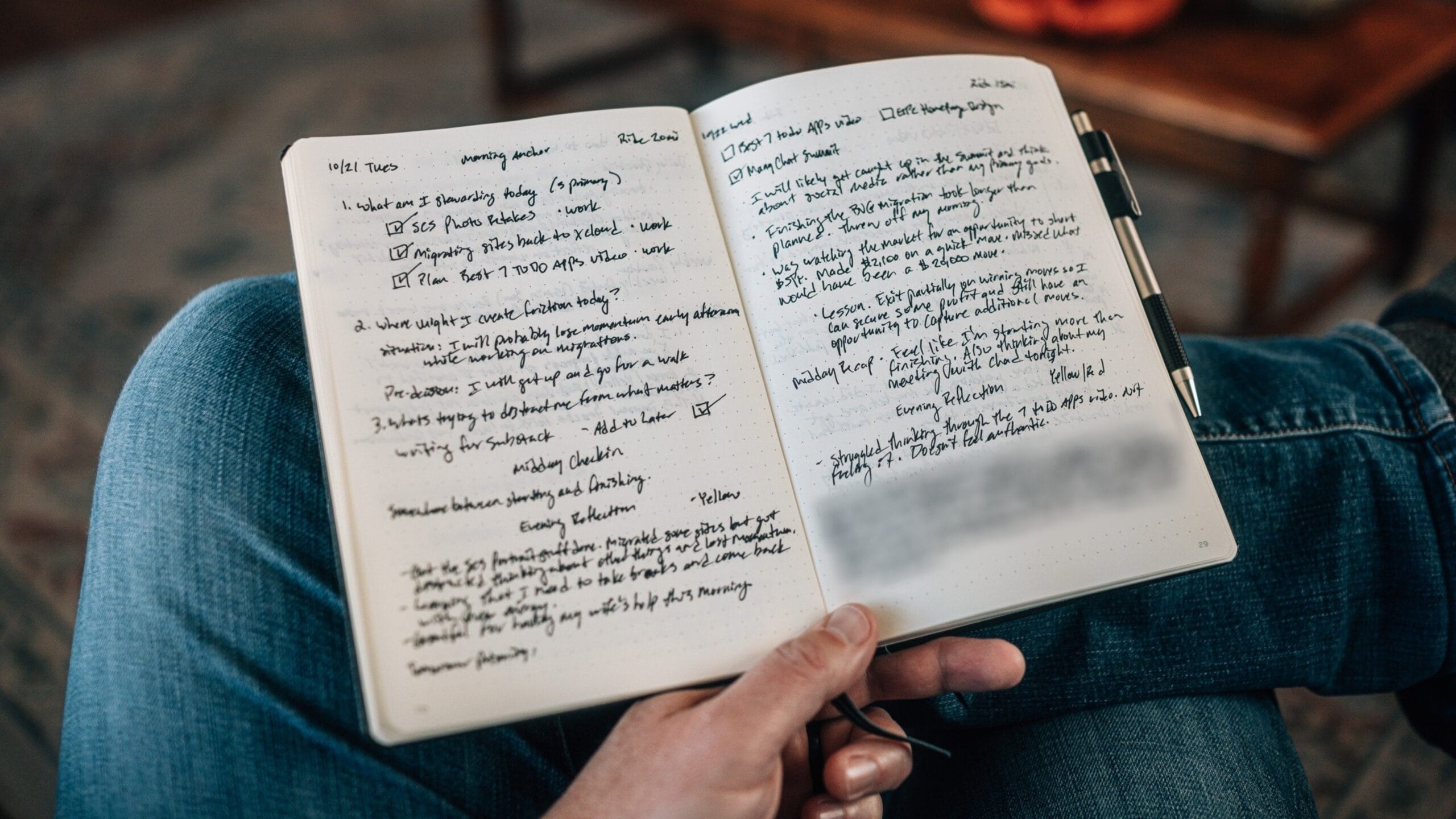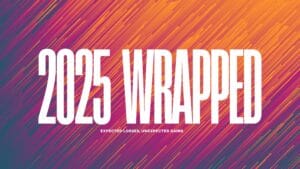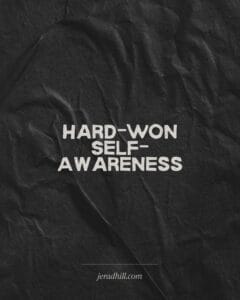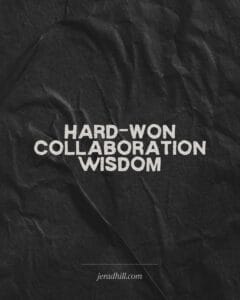A 30-Day Journaling Reset
For the past few years, my journaling practice has been consistent but increasingly scattered. Each morning, I’d open my notebook to a blank page and write:
- A short list of priority tasks
- My schedule for the day
- Notes throughout the day: quotes from reading, highlights, things I wanted to remember
It worked. Sort of.
But earlier this month, I started dictating daily notes into Notion, hoping AI could help me spot patterns and generate recaps of what I was actually doing versus what I was planning to do. The experiment revealed something uncomfortable: when I sat down with my paper journal, I was missing details about my day because I was writing too far removed from the actual experience. On top of that, I was duplicating effort. Worse, I still wasn’t sure I was making progress on what actually mattered.
When Your Mind Becomes a Liability
I’ve had a lot on my plate lately: client work, church involvement, and relationship dynamics that require wisdom and patience. When my mental bandwidth gets close to tapped out, I need tools that help me see around corners I haven’t yet reached. AI has been helpful for that.
But there’s a darker pattern I’ve been avoiding: when something I’m working on gets challenging, my mind diverts to side quests or easy dopamine.
A client project hits friction? Suddenly, I’m thinking about a new business model.
A church initiative stalls? I’m designing a better framework.
A relationship requires patience? I’m researching communication strategies instead of just being present.
It’s not that these ideas are bad. Many of them are genuinely good. The problem is they’re too big, unsustainable, and ultimately, they’re distractions from what God has already given me to steward.
Through prayer, searching, and asking hard questions, I’ve identified the core issue: I have a stewardship problem.
I’m quick to chase solutions I haven’t vetted well. I’m drawn to what could be while neglecting what is. My strategic mind, which is genuinely a gift, tyrannizes me when I don’t discipline it.
The Insight That Changed Everything
A friend recently said something that stopped me cold:
“Don’t let your ability to see what could be prevent you from stewarding what is with excellence and patience.”
That sentence landed like a gut punch because it named exactly what I’ve been doing. I’ve been so focused on seeing possibilities that I’ve failed to be faithful with what’s already in my hands.
The biblical language for this is stewardship. And the standard isn’t success or impressiveness, it’s faithfulness.
“Moreover, it is required of stewards that they be found faithful.”
— 1 Corinthians 4:2
Not successful. Not innovative. Not visionary.
Faithful.
The Stewardship Stack: A New Framework
For the next 30 days, I’m implementing what I’m calling The Stewardship Stack, a daily practice framework built on one simple question:
“Am I being faithful to what God has already given me, or am I chasing what He hasn’t?”
Here’s how it works:
Morning Anchor (5-10 minutes)
Before I do anything else, I answer three questions in my paper journal:
1. What am I stewarding today?
Not “What sounds exciting?” but “What have I already committed to?”
I write down my 3 primary stewardship areas for today, the commitments I’ve already made that deserve my full attention. For each one, I name the zone it belongs to (Work, Family, Church, Health, etc.) and why it matters.
This forces me to distinguish between what’s mine to steward and what’s just shiny and new.
2. Where might I experience friction today?
I identify 1-2 situations where my focus might slip. Then I make a pre-decision: “I will focus on what I’m stewarding, nothing else.”
This question keeps me from burning valuable mental energy needed to move forward.
3. What’s trying to distract me from what matters?
I name the shiny new solution, opportunity, or problem I’m tempted to chase. Then I write it in my “Later List.” I’m not saying no, just not today.
This honors my strategic mind without letting it derail execution.
Midday Check-In (2 minutes)
At lunch or mid-afternoon, I ask myself one question:
“Am I finishing or starting?”
If I’m tempted to start something new, I stop and return to my morning commitments. If I’m making progress, I celebrate it, even if it’s small.
The rule: I don’t get to start anything new until I’ve made meaningful progress on what I said mattered this morning.
Evening Reflection (5 minutes)
Before bed, I ask two questions:
1. Did I steward well what was already mine?
Not “Did I accomplish everything?” but “Was I faithful to my commitments?”
I give myself a simple grade:
- Green = Faithful to commitments
- Yellow = Got distracted but recovered
- Red = Chased something new, didn’t finish
2. Where did I show up with focus vs distraction?
I identify one situation in which I avoided distraction and one in which I maintained focus.
This builds mental awareness as a daily practice.
Why This Framework Will Work
This isn’t just productivity optimization. It’s spiritual discipline.
It plays to my strengths:
- I still see possibilities (strategic thinking)
- I still plan and execute (implementation capability)
- I still leverage my self-awareness (pattern recognition)
But it guards against my weaknesses:
- Prevents solution-chasing (Later List + One Decision Rule)
- Manages intensity (daily awareness questions)
- Breaks analysis paralysis (forces commitment to 3 things, not 30)
- Builds emotional/relational warmth (evening reflection)
- Creates momentum (finish before starting)
And it’s biblically grounded:
This framework is built on stewardship, the principle that I’m managing what’s been entrusted to me, not chasing what hasn’t been given yet. My temptation is to pursue the bigger impact, the better solution, the more strategic opportunity.
This framework asks: “Are you being faithful to what’s already in your hands?”
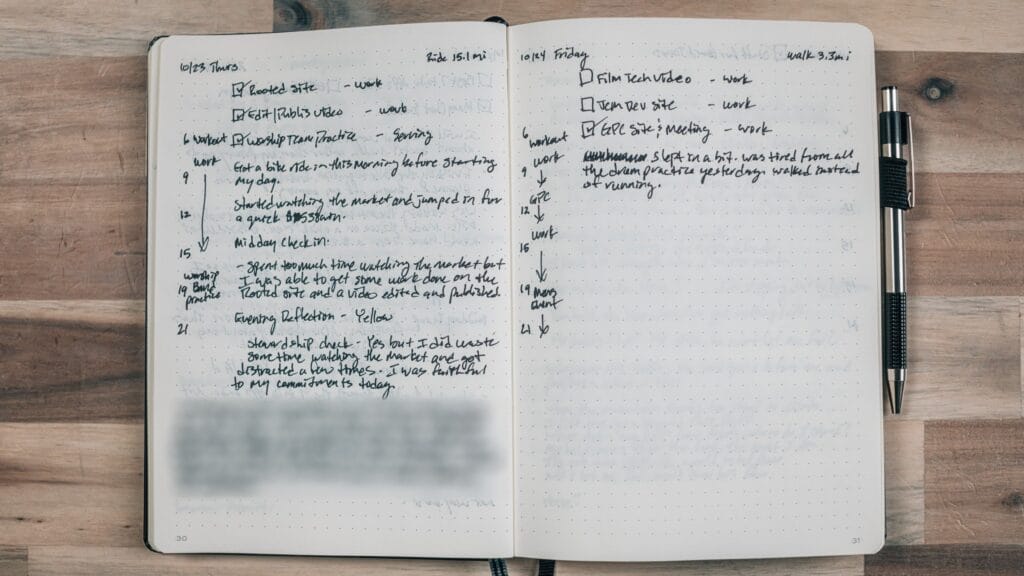
Starting Small
I’m not implementing everything at once. That would be… well, exactly the problem I’m trying to solve.
For Week 1, I’m only doing the Morning Anchor. I’ll also continue adding details from my day. That’s it.
Once that feels natural, I’ll expand on the Midday Check-In. Then the Evening Reflection. Building the habit before adding complexity.
Because here’s what I’m learning: I don’t need a better strategy. I need to execute the one I already have with more faithfulness and less distraction.
My strategic mind is a gift. But it can become a prison if I don’t discipline it. This framework doesn’t eliminate my ability to see possibilities; it channels that gift toward faithful completion rather than endless exploration.
An Invitation
If you’re reading this and recognizing yourself, if you’re someone who sees what could be better but struggles to finish what you’ve started, maybe this framework is for you too.
You don’t need to be exactly like me for this to work. But if you’ve ever:
- Started strong but lost momentum when things got hard
- Found yourself thinking about the next thing while neglecting the current thing
- Felt the tension between vision and execution
- Struggled with being present because your mind is always three steps ahead
…then maybe you also have a stewardship problem.
The good news? Stewardship is a practice, not a personality. We can learn it. We can build it. We can become people who are faithful with what’s in our hands.
I’ll be sharing updates throughout this 30-day experiment with paid supporters on Substack, what’s working, what’s not, and what I’m learning about myself in the process.
But today, the commitment is simple:
Steward what’s already mine with excellence and patience.
“Moreover, it is required of stewards that they be found faithful.” — 1 Corinthians 4:2
